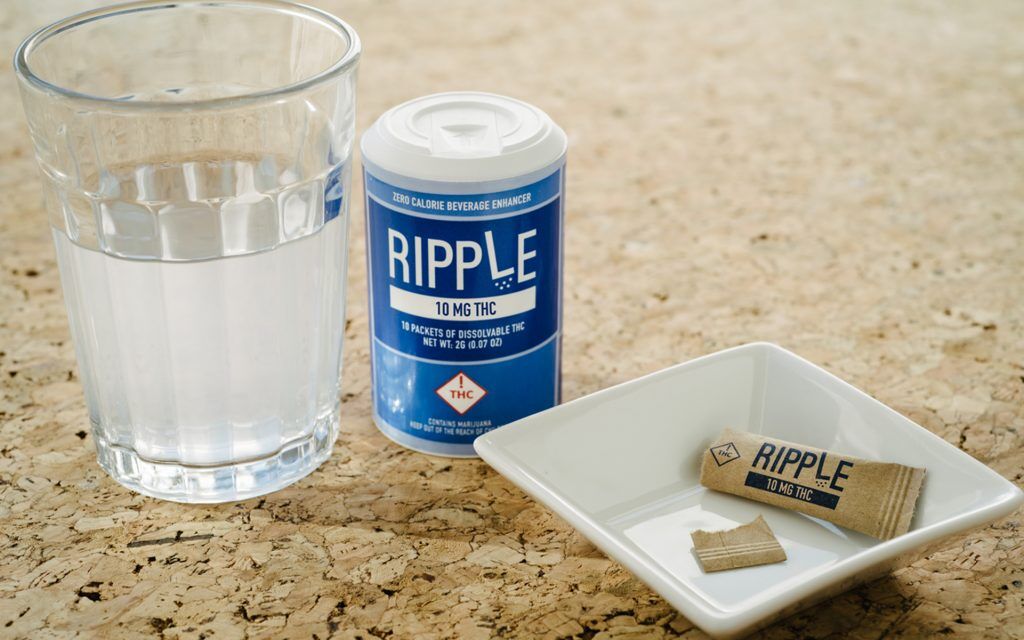Let’s face it, not everybody is a fan of cannabis-infused edibles. No matter how hard you try to mask that signature cannabis flavor, an aftertaste or odor is often still detectable in many infused products. Solving the flavor problem is no easy task, but a new preparation may offer a solution.
Flavorless, odorless, and with a faster time of onset, dissolvable cannabinoid powder is an innovation that has the potential to change the edibles landscape from here on out. But what exactly are dissolvable cannabinoids, how are they made, and what value can they offer?
Why Use Dissolvable Cannabinoids?
Dispensary shelves are often lined with sugary, pre-packaged products that attempt to mask the flavor of cannabis, which becomes even more challenging with more potent edibles.
Furthermore, cannabinoids are fat-soluble and hydrophobic (they do not like water). When added to a product, oily cannabis concentrates create limitations due to their inability to mix with certain substances.
These attributes create unique obstacles for edibles companies who wish to create a more health-conscious and versatile consumable, but are limited by having to use fats and oils for solubility or flavor-masking purposes.
Dissolvable cannabinoids are a water-soluble, flavorless powder. This means it can be added to virtually anything–liquid or solid. Furthermore, it doesn’t compromise the integrity of the final product. With dissolvable cannabinoids, you can turn anything–even a glass of water–into an edible infusion.
How Dissolvable Cannabinoids Are Made

Stillwater Brands, a Colorado-based company, has been innovating with dissolvable cannabinoids since 2016. Their company’s co-founders Jeremy Goldstein, Missy Bradley, and Justin Singer began with a mission to provide a low-potency and versatile product after struggling to find a sensible solution for Justin’s diabetic grandmother.
The trio teamed up with Keith Woelfel, a food scientist with 20 years under his belt from Mars Inc., to create a product that would break the barriers of flavor, potency, and versatility. Thus Ripple, their signature dissolvable THC powder was formulated.
Given the hydrophobic properties of cannabinoids, the process of turning a water-hating molecule into a water-loving one is no easy feat. This very barrier is a major reason why the market has been limited in options for infusions.
The patent-pending process to create Ripple first begins with a high quality CO2 distillate sourced from a reputable Colorado extraction company. Once in the hands of Stillwater Brands, the distillate begins its long and arduous laboratory process to become a water-soluble powder.
Step 1: Emulsification
The first step in the process involves taking activated (fully decarboxylated) distillate and emulsifying it into a slurry (a semiliquid mixture) by using food-grade surfactants and emulsifiers.
With intense mixing, the distillate is broken down into very tiny particles and coated by surfactants. This is how the “water-hating” particles become water-soluble.
Step 2: Drying
In order for the slurry to dry, excess moisture must evaporate over the span of several days. This process is simplified by use of vacuum ovens–the same type used in processing other concentrates like hash oil. The finished product is a fine, dry powder.
Step 3: Dosing and Packaging
Stillwater’s Ripple is currently available in three varieties (in addition to being the primary cannabinoid vessel in their line of instant tea and coffee products):
Dosing dissolvable cannabinoids at this level involves careful calculation, rigorous testing, and precise execution. Stillwater Brands is currently running R&D to better streamline turnaround on their line of products from processing to packaging.
The Applications of Dissolvable Cannabinoids

Dissolvable cannabinoid powders have an endless number of applications, making it one of the most versatile cannabis-infused products available on the market today. Given their water solubility and the fact that they are fully activated, they become more bioavailable when consumed.
This means that consumers will experience the effects faster, longer, and more efficiently.
Traditional edibles can take up to 90 minutes to kick in due to the cannabinoids having to pass though the digestive tract before they’re fully absorbed. An activated, water-soluble cannabinoid powder enters the system more quickly, with an onset window of about 20 minutes and effects that can last up to four hours.
This is because the solubility of the powder allows for absorption in the mouth, intestines and liver simultaneously.
Given that dissolvable cannabinoids are odorless, flavorless, and fully activated, DIY infusions are now as easy as opening a pre-dosed package and adding it to a food or beverage. That means consumers are given the autonomy not only to prepare edibles in a way that is most enjoyable to them, but at a dosage that meets their needs.
Furthermore, these products contain zero calories, so they may be used in more health-conscious ways.
Whether you’re concerned about cannabis dosing, curious about healthier cannabis preparations, or eager to experiment in the kitchen with new infusions techniques, a water-soluble and carefully-dosed cannabinoid powder is indeed a game-changer.



